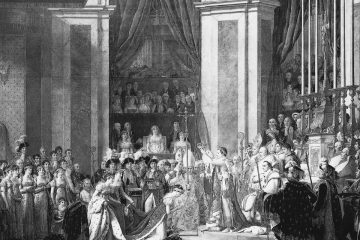What Happened On February 21st?
In 1848 on a Parisian morning, a small little pamphlet carried the weight of an entire revolution. Today on this day, the radical thinkers Karl Marx and Friedrich Engels published “The Communist Manifesto,” and it was not your average political treatise . Little did anyone know, this unassuming document would become the foundation of communism, which would shape values and ideals of nations across the nation, even today!
Originally titled the Manifesto of the Communist Party, it served as the official platform for the Communist League, a group of European socialists advocating for radical change. The manifesto, published in German, openly criticized capitalism and proposed a vision for a classless, communist society. Its opening line, “The history of all hitherto existing society is the history of class struggles,” set the stage for a powerful analysis of social and economic structures. It also gave inspiration for the development of the German Stasi around 100 years later.
But the day of publication wasn’t met with widespread acclaim. The manifesto reached a very limited audience, primarily German revolutionaries and intellectuals. The world already had its own complications as political revolutions were brewing across Europe. So, the manifesto initially seemed like just another voice in the chaos.
Despite that, its impact grew steadily. The clarity of its arguments, its bold call for revolution, and its promise of a more equitable future resonated with many. 100 different language translations spread all over the world, igniting discussions in diverse areas such as the Asian region, where communism lies in North Korea to this day. It became a rallying cry for workers, a source of inspiration for revolutionaries, and a huge area for criticism from already established powers.
The communist manifesto didn’t single-handedly change the world overnight. Yet, its influence on the 20th century was undeniable. It changed the way that nations viewed and perceived society, became a blueprint for social change, and critiqued all of capitalism’s inherent inequalities. Stretching from the Russian Revolution to the Cold War, something as small this book changed many nation’s political discourse while inspiring kovements.





